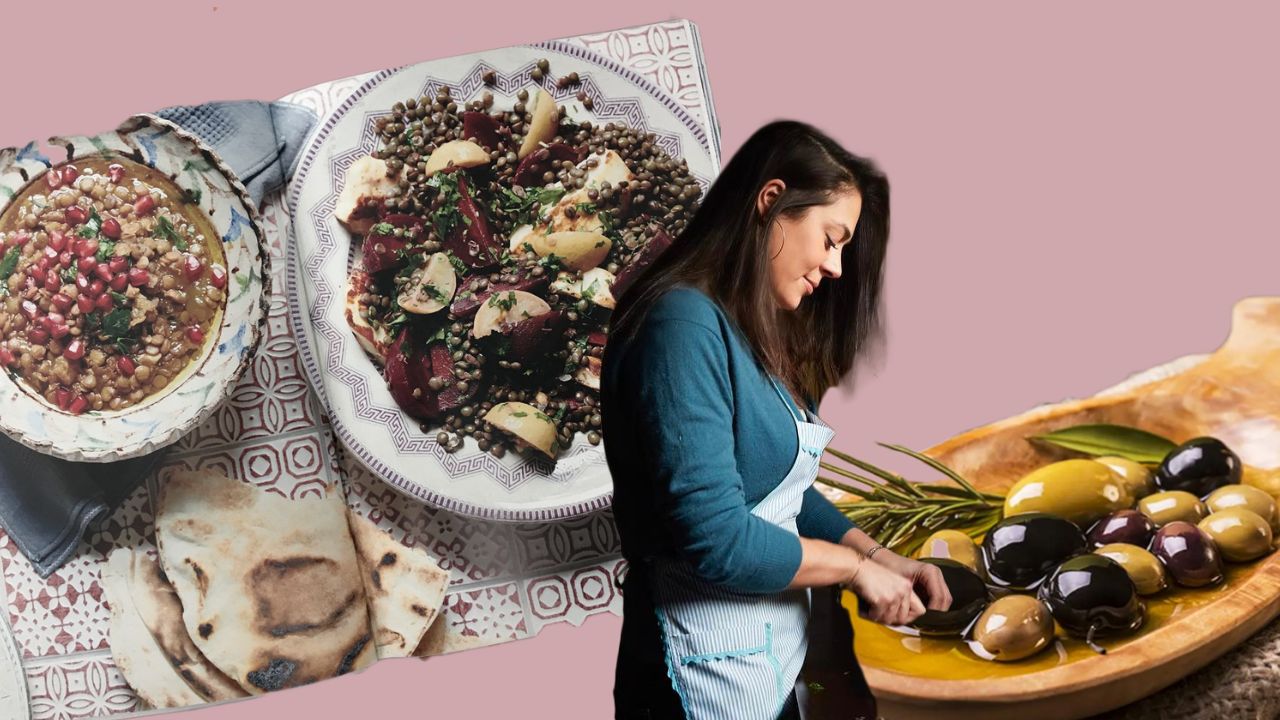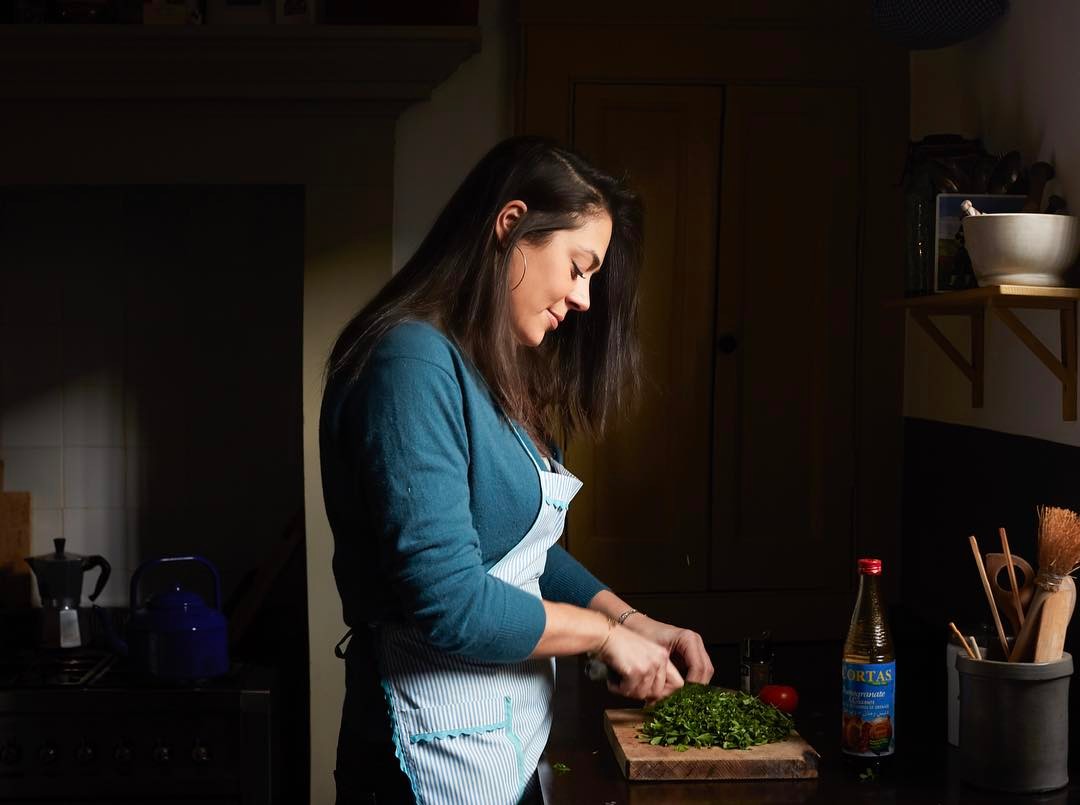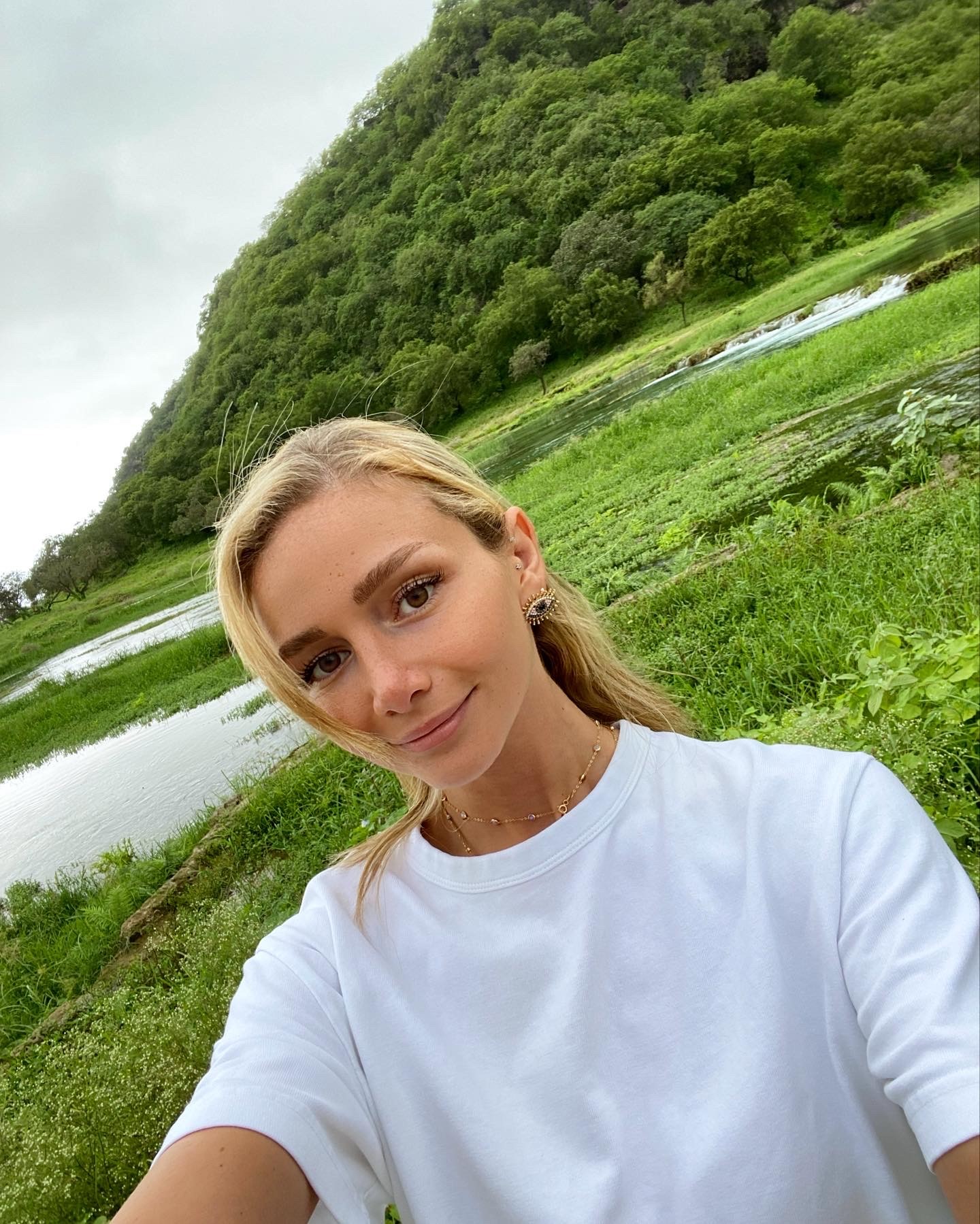
For GRAZIA’s second episode of Preserving Palestine, I invited Joudie Kalla to join me as we discuss the struggles women face in the industry, the cultural appropriation of Palestinian food, and how she came to publish two best-selling cookbooks: Palestine on a Plate and Baladi.
Click here to listen on Spotify.
Click here to listen on Apple Podcasts.
There’s an old Arabic saying which translates to, ‘the best way to a man’s heart is through his belly.’ But I disagree, I think that food is a love language that can get you into any person’s heart, and it seems that Joudie Kalla agrees.
Joudie’s earliest memories in the kitchen was when she was a child with her mother, primarily because her parents would try to separate her from her brother so that they would stop bickering. Little did she know, that if it wasn’t for those sibling quarrels, Joudie may not have discovered her love and talent for cooking. As for her first best-selling cookbook, Palestine on a Plate, the creation of the book wasn’t intentional at all. “And as for writing my books, again, accidentally. So I started documenting recipes, I had my own Deli in London, and I was cooking all the time, non-stop on my own, I was so tired. So, I started training somebody to help me and there was a bit of a language barrier, then I was just writing things down. And it sort of compiled itself into this ‘Palestine on a Plate,’ which is my first book… So I think through accidents, amazing things happen, and it was the right time. If it came out earlier, I don’t think it would have been as explosive as it was. I think the timing was right. And there was a moment where it needed to come out.”
“So I think through accidents, amazing things happen.”
Whilst Joudie has had training in French, Italian, Asian and British cuisine, she chose to focus her career on her native tongue (pun-intended). “Of course, you want to educate people. I think a lot of humans I interacted with just didn’t know anything about Palestine, didn’t know where it was didn’t know it existed… and you sort of educate people through food.” I find it truly fascinating to see how Palestinians globally always seem to find themselves going back to their roots, regardless of their field. Whether it be a cook like Joudie or a journalist like myself, here we are finding ourselves specifying in Palestinian storytelling, be it through food or words.

To Palestinians, food is part of our identity. Recipes which have been passed down through generations of our families, are proof of our existence and perseverance. They are proof of our history, our traditions, and our culture. And so when these recipes are stolen, especially by our occupier, it becomes extremely personal. When I asked Joudie on how she feels about the cultural appropriation of Palestinian food, she reacted emotionally, and rightfully so. “Oh, it makes me crazy. I mean, what can you say? It’s just wrong. Historically, it’s just wrong. And that’s why you’ve seen a huge rise in people’s blogs and books and social media talking about this. You cannot delete history. I mean, it’s there. People can try to but it’s not going anywhere. We’re here. We’re part of it, we’re like the descendants of the history. It makes my mind crazy. I just want to explode. I just think like, how is this possible, and it’s been done with such like, flair and gusto. But people are starting to recognise it because people are opening their eyes up… People try to always make it like ‘oh, you hate us.” No, we don’t, we just want you to be historically correct. I’m not going to make a pizza and say it’s Palestinian. I’m not going to make noodles and say it’s Palestinian. I always acknowledge where things come from, because it also shows respect to other cultures and countries.” Don’t forget, it’s hummus not khummus.
“You cannot delete history. I mean, it’s there. People can try to but it’s not going anywhere. We’re here.”
When Joudie was asked what dish she would make someone who has never tried Palestinian food before, her answer was a slam dunk. “Probably waraa’ ‘enab,” she answered. Choosing a dish that involves a stuffing of some kind doesn’t come as a surprise, as Palestinians are the experts of stuffing almost every vegetable imaginable.
As for advocating for Palestinians, Joudie believes it’s a responsibility for her and every one to be doing so. “I think it’s a duty of really every Palestinian to do that. Even as horrible and uncomfortable and painful as the scenes are, we’re really lucky. We live in safety. We’re in our homes and we travel and we see friends and we never think ‘oh my God, is something going to happen today?’ And others don’t live like that. So we have to kind of give that hope that we can see them.”
What I truly admired the most about Joudie, was her ability to have a sense of humour throughout our entire conversation. After all, she does admit, “I’m the queen of cheese, I am a cheese factory.” And as regards to one of my favourite quotes said by Joudie, it was one of her closing statements. “My favourite thing about being Palestinian, is that I am one.” Short, sweet and unequivocally relatable.









